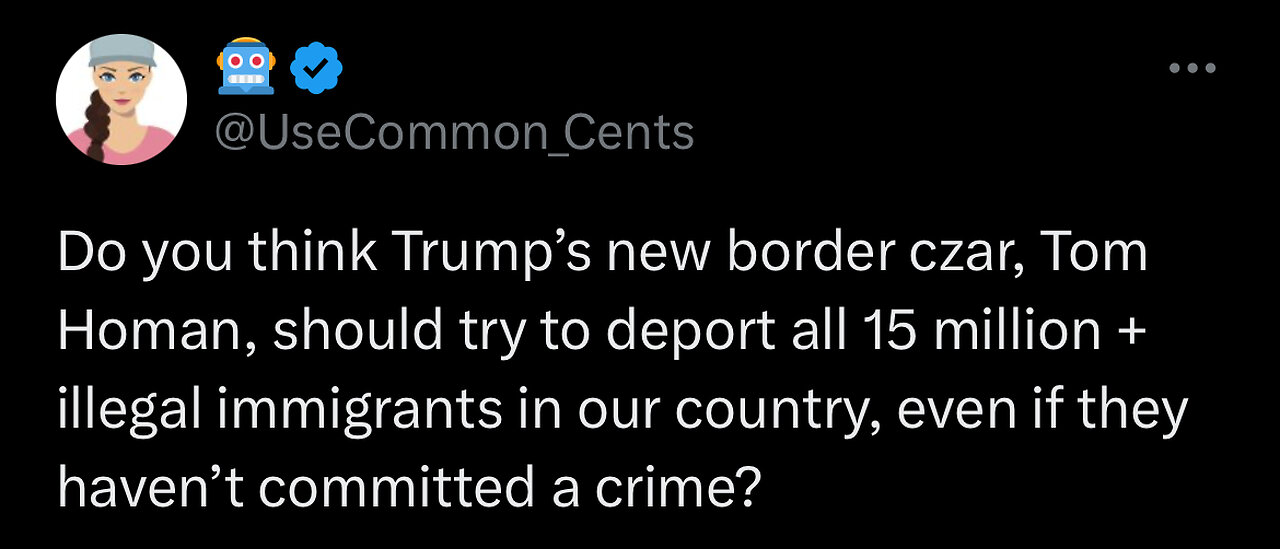Premium Only Content

Sanctuary Cities and Public Safety: Balancing Federal and Local Roles in Immigration Enforcement
The debate surrounding sanctuary cities has reignited as federal and local law enforcement agencies grapple with conflicting priorities. Central to this issue is the challenge of balancing public safety with political and legal considerations, particularly in the context of immigration enforcement.
The Federal Perspective: “Help Us or Get Out of the Way”
Under the Trump administration, efforts to address sanctuary city policies were bolstered by Department of Justice lawsuits and the withholding of federal funds from non-cooperative jurisdictions. The intent was clear: compel local governments to assist federal immigration enforcement or face financial consequences.
However, this policy was swiftly reversed by President Biden, signaling a shift in federal priorities and further complicating coordination between agencies. Federal officials argue that without cooperation from local jurisdictions, their job becomes exponentially harder.
As one official put it, “If we can’t get assistance from New York City, then we may need to double the resources we send there. We’re going to do the job with or without local help, but it’s safer and more efficient to work together.”
The Risks of Non-Cooperation
The lack of cooperation creates significant risks for officers, communities, and immigrants alike. When local jurisdictions release individuals with serious criminal records instead of transferring them to federal custody, it forces federal agents to apprehend these individuals in uncontrolled environments.
“Arresting a dangerous individual in a jail setting is safer for everyone,” the official noted. “But when they’re released into the community, it puts officers, civilians, and even the suspects themselves at greater risk.”
These scenarios also strain resources, forcing federal agencies to divert manpower to track individuals who could have been detained earlier. This, officials argue, undermines public safety and fosters an environment where criminal activity can flourish unchecked.
Sanctuary Policies and Their Consequences
Supporters of sanctuary policies often argue that these measures are designed to protect immigrant communities from fear of deportation and encourage cooperation with local law enforcement. However, federal officials counter that these policies can have unintended consequences, particularly for the very communities they aim to protect.
“Do they want a sexual predator in their neighborhood?” one official asked rhetorically. “Do they want someone convicted of DUI ten times walking free? These are not abstract questions; they’re real threats to public safety.”
Federal officials emphasize that immigrant communities are often the most frequent victims of crimes perpetrated by individuals shielded by sanctuary policies, such as those associated with gangs like MS-13. “Let us protect not only Americans but also the immigrant community,” they urged.
The Way Forward: A Call for Practical Solutions
Despite the heated rhetoric, both sides agree on one principle: public safety must remain the top priority. Federal officials have called for renewed dialogue and practical solutions to ensure that local and federal agencies can work together effectively.
“We’re not looking to terminate cooperation,” one official explained. “But if you’re not going to help, at least don’t stand in the way.”
This issue underscores the broader need for an equitable interface between federal and local law enforcement. Achieving this balance will require a nuanced understanding of the challenges faced by both sides and a commitment to prioritizing public safety over political divides.
Conclusion
As the debate over sanctuary cities continues, it is clear that the stakes are high. Local and federal agencies must find ways to collaborate more effectively to protect all communities—American and immigrant alike. The question now is whether policymakers can rise above the polarization to craft solutions that prioritize safety, efficiency, and fairness for all.
-
 15:11
15:11
FragmentsOfTruth
1 day agoTHE TOXIC TOOTH
221 -
 2:18:15
2:18:15
Side Scrollers Podcast
18 hours agoBlizzard BANS Player for Saying “n00b” + Cracker Barrel Ends PRIDE Funding + MORE | Side Scrollers
42.3K25 -
 19:54
19:54
GritsGG
13 hours agoMAX SR Win on Warzone! Ranked Tips for Loadout & Landing Spot!
3.94K -
 LIVE
LIVE
Lofi Girl
2 years agoSynthwave Radio 🌌 - beats to chill/game to
253 watching -
 44:41
44:41
Inverted World Live
12 hours agoPolitical Violence in Minnesota w/ AK Kamara
160K18 -
 6:29:40
6:29:40
SpartakusLIVE
12 hours ago#1 Massive MEAT-HEAD can't stop WINNING, can't stop FLEXING
80.3K -
 5:09:25
5:09:25
Drew Hernandez
13 hours agoGIDEON AI THREAT DETECTION SOFTWARE PUSH & NEW EPSTEIN EMAIL LEAK?
48.8K26 -
 2:03:51
2:03:51
TimcastIRL
9 hours agoTrans Minneapolis Shooter BLAMED Massacre On Mom & Gender Transition | Timcast IRL
187K348 -
 47:29
47:29
Man in America
15 hours agoIT DOESN'T ADD UP: The Trans Shooter's Story Is FULL of Holes
59K66 -
 3:59:36
3:59:36
StevieTLIVE
8 hours agoFriday Night Warzone HYPE
44.5K1